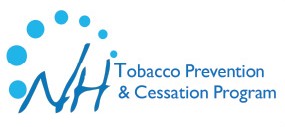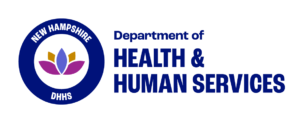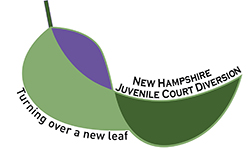NH JUVENILE COURT DIVERSION SUMMIT
2025 NH Juvenile Court Diversion Network Summit
Monday, June 9th & Tuesday, June 10th
Grappone Conference Center | Concord, NH
Grappone Conference Center | Concord, NH
2025 AGENDA
Monday, June 9th
7:30-8:30
Registration, Networking & Exhibits
8:30-8:45
Welcome & Year in Review
8:45-9:45
Keynote Presenter
Taking the Risk for Restorative Justice: Why it matters and how we get there
Erika Sasson, Attorney and Practitioner Designing and Facilitating Restorative Justice Practices
**Handouts are not available for this session.

9:45-10:00
Refreshment Break, Networking & Exhibits
10:00-11:30
CONCURRENT SESSIONS | BLOCK A
A1. A Path to Self-regulation-Polyvagal Ponies
Click here to download handouts/presentation for this session.
Polyvagal Ponies is an exciting program that inspires young people to understand their nervous system and equips them with essential self-regulation tools for navigating stress. In this session, we’ll explore the program’s structure and benefits, empowering youth to cultivate healthier coping strategies for personal growth.
Learning Objectives:
Following this session, participants will be able to:
- Articulate how the nervous system functions, including the three key neural circuits.
- Describe how horses help humans to understand their nervous system.
Presenters:
Kristen McGraw, ESMHL, Program Director, UpReach Therapeutic Equestrian Center
Abby Falk, MS, LCMHC, LMHC, Community Operations & Relations Clinical Manager, Granite State Children’s Alliance Behavioral Health Services
Karen Kersting, Executive Director, UpReach Therapeutic Equestrian Center
A2. Evidence-Based Practices Essential to NH’s Behavioral Health Workforce
Click here to download handouts/presentation for this session.
Engaging youth and families can be challenging due to the numerous stressors and competing demands on their time and energy. This session will explore evidence-based practices that effectively involve youth and families, including graphic facilitation, Trust-Based Relationship Intervention, and culturally responsive care. Participants will have opportunities to practice essential skills.
Additionally, in this interactive session, you will learn about available resources in New Hampshire, workforce development, and training opportunities aimed at enhancing the skills and knowledge of those working with children, youth, and families.
Learning Objectives:
Following this session, participants will be able to:
- Describe at least three resources in NH that help to improve the social, emotional and overall well-being of children across the continuum.
- Explain how graphic facilitation and other tools, such as motivational interviewing are used to engage youth.
- Identify two strategies to improve culturally responsive care with youth and families.
Presenters:
Macey Muller, Project Director III, Institute on Disability at UNH
Heidi Cloutier, MSW, Endorsed Northeast Positive Behavioral Interventions and Supports Trainer, RENEW Trainer, NH Alternative Peer Group Trainer, Project Director III, Institute on Disability at UNH
Kathy Francoeur, M.Ed, Co-Director of Training and Technical Assistance, Children’s Behavioral Health Team, Institute on Disability at UNH
A3. How the adolescent brain drives behavior!
Click here to download handouts/presentation for this session.
Stages or ages do not easily define adolescent development. It encompasses a range of physical, cognitive, and socioemotional changes influenced by genetics and the environment. Navigating this period can be challenging for adolescents, parents, teachers, and social service providers. This session will explore how adolescent brain development affects identity formation, risk-taking behaviors, and personality. Additionally, it will examine the relationship between mental health and various cultural factors in the context of adolescent development.
Learning Objectives:
Following this session, participants will be able to:
- Identify three brain areas relevant to adolescent cognition, emotions, and behaviors.
- Discuss socioemotional influences on adolescent development.
- Connect brain development and socioemotional factors to identity formation, risk-taking behaviors, and personality.
Presenters:
Lindsay Murphy, PhD, LCMHC, Associate Director of Child, Adolescent and Family Services, Greater Nashua Mental Health
Amber McCarthy, MA, MS, Intensive Community-Based Therapist, Greater Nashua Mental Health
Madelyn Bergen, Student
11:30-Noon
Refreshment Break, Exhibits & Wellness Activities
Noon-1:00
Lunch Buffet, Networking & Exhibits
1:00-2:30
CONCURRENT SESSIONS | BLOCK B
B1. Following Their Lead: Empowering youth voice to implement youth-centric treatment goals with a strength-based perspective
Click here to download handouts/presentation for this session.
Our society has a history of dismissing, minimizing, and even mocking the voices of teenagers. Additionally, our systems often challenge youth autonomy, which impacts their ability to grow and limits their choices regarding their bodies, treatment, and lives. This session will share trauma-informed strategies for building trust with residents, fostering connections, and incorporating youth voice and choice within programs. We will also discuss the importance and impact of evidence-based programming that meets transition-age youth’s developmental and social support needs in residential settings, such as Trust-Based Relational Intervention, RENEW, Empowerment, Natural Supports, and the Education and Work model. Furthermore, we will share experiences empowering youth to advocate for themselves within their treatment teams and in their future planning.
Learning Objectives:
Following this session, participants will be able to:
- Practice utilizing a trauma-informed approach to build connection and trust with youth to gain youth perspective and voice.
- Articulate the link between evidenced-based models that support the mission with youth success and system change.
- Utilize youth-centric, strength-based language to advocate for youth effectively.
Presenters:
Savannah Fay, LICSW, Clinical Manager/ RENEW Coach, Dover Children’s Home
Daley Buckwell, MSOL, Educational Coordinator/ RENEW Facilitator, Dover Children’s Home
Sarah Gordon, MSW, Director of Treatment Services/ RENEW Coach/ TBRI Practitioner, Dover Children’s Home
Kathy Francoeur, MEd, Co-Director of Training and Technical Assistance, Children’s Behavioral Health Team, Institute on Disability at UNH
B2. The Spirit of Motivational Interviewing: Hope as a Collaborative Interpersonal Process
Click here to download handouts/presentation for this session.
Are you a problem-solver and advice-giver extraordinaire? Join this interactive and dynamic presentation on the Spirit of Motivational Interviewing (MI) and hope as a collaborative interpersonal process. Participants will break into groups and engage with colleagues to examine their “fixing reflex,” define hope, and discuss ways hope can be a collaborative process when working with youth, families, and communities.
Learning Objectives:
Following this session, participants will be able to:
- Define ways hope can be a collaborative interpersonal process.
- Describe why unsolicited solution offering is a barrier to youth hopefulness and supporting youth and their families in making change.
Presenter: Audrey Garfield, Motivational Interviewing Trainer
B3. Culturally Responsive Engagement with LGBTQ+ Youth
Handouts are not available for download for this sessions. Please contact Jessica Goff for more information about the presentation or to recieve a copy of the slides ([email protected]).
This interactive session empowers attendees with the terminology and practical strategies to effectively engage with LGBTQ+ youth in juvenile justice and diversion settings. Through data and storytelling, we will highlight the vital importance of inclusive practices and policies for this community and the evidence-based foundations of these techniques. As LGBTQ+ youth face overrepresentation in the juvenile justice system due to stigma and discrimination, this session will inspire attendees to implement practices that cultivate supportive environments and drive meaningful change. Questions are encouraged throughout the session.
Learning Objectives:
Following this session, participants will be able to:
- Accurately define and understand the differences between sex assigned at birth, gender identity, gender expression, and sexual/romantic orientation.
- Name at least three examples of common LGBTQ+ identity labels.
- Recognize that experiences of discrimination are directly linked to increased rates of mental health concerns and systems engagement among the LGBTQ+ youth population and that being inclusive acts as a protective factor.
- Effectively apply inclusive strategies, including utilizing correct pronouns, asking appropriate questions, reacting conductively when someone comes out, and identifying places for growth in agency policies.
Presenter: Jessica Goff, MSW, Education & Training Director, NH Outright
2:30-2:45
Refreshment Break, Networking & Exhibits
2:45-4:15
CONCURRENT SESSIONS | BLOCK C
C1. Youth at Risk? There’s a Game for That! A new way to engage youth and facilitate dialogues that empower them to make healthy choices
Click here to download handouts/presentation for this session.
Join this session to learn about Juvenile Justice Jeopardy, an intervention and connection tool specifically designed for youth in New Hampshire. This program is supported by a partnership with the Division of Children, Youth, and Families (DCYF) and the Juvenile Justice Reform Commission. Participants will discover how this fun and engaging program facilitates meaningful discussions with youth on critical topics related to the legal system, police interactions, substance use and abuse, and other risky behaviors. This session will highlight the benefits of gamifying this content for youth while using a game-based format to provide attendees with more information about the tool, its development, and its practical applications. Participants will also learn how to implement Juvenile Justice Jeopardy into their programming. Join us to learn more about—and play—Juvenile Justice Jeopardy, which is now available to programs across the state!
Learning Objectives:
Following this session, participants will be able to:
- Identify three benefits of gamifying information about the legal system, police interactions, risky behavior, and their work with system-involved youth.
- Summarize NH laws that specifically impact youth and legal concepts that often result in NH youth system involvement.
- Describe how Juvenile Justice Jeopardy was developed and how it can be used in their programming.
Presenter: Kristen Wheeler, JD, Legal Director, Strategies for Youth
C2. Warrior >Worrier: Strength through awareness
**Handouts are not available for this session.
Join this session to learn about Juvenile Justice Jeopardy, an intervention and connection tool specifically designed for youth in New Hampshire. This program is supported by a partnership with the Division of Children, Youth, and Families (DCYF) and the Juvenile Justice Reform Commission. Participants will discover how this fun and engaging program facilitates meaningful discussions with youth on critical topics related to the legal system, police interactions, substance use and abuse, and other risky behaviors. This session will highlight the benefits of gamifying this content for youth while using a game-based format to provide attendees with more information about the tool, its development, and its practical applications. Participants will also learn how to implement Juvenile Justice Jeopardy into their programming. Join us to learn more about—and play—Juvenile Justice Jeopardy, which is now available to programs across the state!
Learning Objectives:
Following this session, participants will be able to:
- Identify three benefits of gamifying information about the legal system, police interactions, risky behavior, and their work with system-involved youth.
- Summarize NH laws that specifically impact youth and legal concepts that often result in NH youth system involvement.
- Describe how Juvenile Justice Jeopardy was developed and how it can be used in their programming.
Presenter: Nicole Mitchell, Registered Yoga Teacher, LADC, LCS, Director, Graton County Alternative Sentencing
C3. Empowering Change: Integrating the Choose Love Movement into Juvenile Justice
Click here to download handouts/presentation for this session.
This transformative session is designed to equip participants with the tools and insights needed to infuse the character values of the Choose Love Movement into the juvenile justice court diversion network. By doing so, stakeholders can foster a supportive environment that promotes healing and positive outcomes for youth in the justice system. Also, hear from an individual who has participated in the Choose Love for Corrections program to learn how it has impacted their life.
Learning Objectives:
Following this session, participants will be able to:
- Explore the core principles of the Choose Love Movement and how these values can be applied within the juvenile justice context to create increased effectiveness and outcomes.
- Engage in discussions to identify actionable strategies for integrating Choose Love principles into their work to support youth rehabilitation.
Presenter: Shannon Desilets, MNRI Core Specialist, Community Wellness Administrator/Program Director, NH Department of Health and Human Services, Division for Behavioral Health – Choose Love Movement
Tuesday, June 10th
7:30-8:30
Registration, Networking & Exhibits
8:30-8:45
Day Two Welcome
8:45-9:00
Refreshment Break, Exhibits & Networking
9:00-10:30
CONCURRENT SESSIONS | BLOCK D
D1. Trauma-Informed Support For Youth with Autism or Intellectual Disabilities
**Handouts are not available for this session.
This session will explore the connection between trauma and neurodiversity. Individuals with intellectual and developmental disabilities (IDD), autism, and neurodiversity often face more significant challenges, experiencing trauma and adversity at higher rates than their neurotypical peers. Together, we will define these important terms and provide valuable tips for empowering and supporting youth at this unique intersection.
Learning Objectives:
Following this session, participants will be able to:
- Define neurodiversity and intersectionality.
- Describe the impact of trauma on youth with neurodiversity.
- Promote more inclusive, affirming, and trauma-informed practices to support neurodivergent people.
Presenter: Kelly Smith, MSW, LICSW, Clinician, Training Director, Dartmouth Trauma Interventions Research Center
D2. Introduction to the NH Victims’ Compensation & Address Confidentiality Programs
Click here to download handouts/presentation for this session.
This session will highlight two innovative programs that provide services and assistance to crime victims and their families: the New Hampshire Address Confidentiality Program and the NH Victims’ Compensation Program. The focus will be on gaining a foundational understanding of each program, learning how to assist crime victims and their families with expenses directly related to the crime, and protecting a crime victim’s home address from public records.
Learning Objectives:
Following this session, participants will be able to:
- Explain the benefits available to a crime victim and their immediate families.
- Outline the application, review, and payment process for claims.
- Recognize who might benefit from participation in the Address Confidentiality Program and the impact this program can have on safety.
Presenter: Lyn Downey, Program Coordinator, State of NH, Department of Justice
D3. NH Student Assistance Program and Community-based Organizations: working together to support youth and families
**Handouts are not available for this session.
The New Hampshire Student Assistance Program (SAP) is a school-based initiative dedicated to preventing and reducing alcohol and drug misuse among our youth ages 12 to 18. With over 44 SAPs across the state, we provide a robust array of prevention and early intervention strategies that empower students and their families to thrive in school.
Through collaboration with community partners, SAP ensures that youth and families receive the vital support they need, both in and out of the classroom. Join us in discovering the potential of the New Hampshire Student Assistance Network and the NH Student Assistance Program and the power of collective efforts to uplift our youth and families in New Hampshire.
Learning Objectives:
Following this session, participants will be able to:
- State the benefits of collaborating with SAP in their community.
- Describe three core components of SAP.
- Identify the next steps to initiate collaboration with SAP in their community.
Presenters:
Julie Yerkes, MEd, CPS, JSI Research & Training Institute, Inc.
Aimee Tucker, CPS, MLADC, Student Assistance Program, Concord High School / Second Start
10:30-10:45
Refreshment Break, Exhibits & Networking
10:45-11:45
Keynote Presenter
The Life-Changing Power of One Caring Adult
**Handouts are not available for this session.
Josh Shipp was a foster kid, a class clown, and a troublemaker. He was written off, kicked out, and every adult’s worst nightmare—until one caring adult changed everything.
Equal parts empathy, instruction, and inspiration, his story will move you to action.
Learning Objectives:
Following this session, participants will be able to:
- Facilitate youth recognizing and accepting responsibility for their mistakes, fostering personal growth and resilience through reflective learning practices.

- Improve communication (on both sides) through effective dialogue techniques, strategically avoiding approaches characterized by “nagging” that could hinder engagement.
- Establish or restore trust with even the most skeptical or oppositional youth by employing evidence-based strategies that foster reliability, demonstrate respect, and cultivate empathetic connections.
- Promote transparency among youth regarding the underlying factors influencing their behaviors, thereby creating a supportive and psychologically safe environment conducive to open discussion and exploration of their thoughts and emotions.
11:45-12:45
Lunch Buffet, Networking & Exhibits
12:45-2:15
CONCURRENT SESSIONS | BLOCK E
E1. Meaningful Engagement: Voice & Choice with Panel Participants
Click here to download handouts/presentation for this session.
Meaningful engagement is not just a core principle of restorative justice; it’s essential for achieving lasting change. While implementing this principle can be challenging, this session will delve into its importance and equip you with practical strategies to foster engagement from referral to completion.
Learning Objectives:
Following this session, participants will be able to:
- Build relationships and connections with each other to support learning.
- Describe the impact of meaningful engagement, voice, and choice of Panel Participants.
- Practice specific ways to promote Meaningful Engagement, Voice & Choice with Panel Participants.
Presenters:
Jon Kidde, MSW, Consultant, Green Omega, L3C
Marc Wennberg, Consultant in Restorative Justice, Community Reentry
E2. Prevention in Pictures: Using Graphic Novels to connect with youth
Click here to download handouts/presentation for this session.
In this session, the New England PTTC will unveil two compelling graphic novels focused on prevention—one dedicated to vaping and the other to problem gambling. Participants will explore the creative journey behind these novels and their associated toolkits. The New England PTTC has crafted content that resonates deeply with middle and high school students by involving youth leaders. Facilitators will gain valuable insights on using these powerful toolkits to make a meaningful impact in the fight against vaping and gambling-related challenges.
Learning Objectives:
Following this session, participants will be able to:
- Describe what graphic medicine is and how it is utilized in health education.
- Describe how graphic medicine can be used in youth problem gambling prevention and vaping prevention.
- Utilize the tool in problem vaping and gambling prevention programming.
Presenter: Sarah Harlow, MA, PS-C, New England PTTC Co-Director, AdCare Educational Institute of Maine, Inc.
E3. Transforming Futures: Bridging Systems in Juvenile Justice and Children’s Behavioral Health for Sustainable Change in NH
Click here to download handouts/presentation for this session.
In 2019, New Hampshire’s Juvenile Justice system embarked on a transformative journey through the Annie E. Casey Foundation’s Probation Transformation program, setting ambitious goals to reshape probation rules and prioritize youth- and family-driven planning. This session explores how adopting the CANS tool and creating a pre-court assessment process have significantly reduced court involvement while enhancing outcomes through strengths-based, trauma-informed case planning.
Participants will learn how these changes align with New Hampshire’s Children’s System of Care—a collaborative, culturally responsive network designed to meet the behavioral health needs of youth across systems. The presentation will highlight innovative strategies to support crossover youth, improve interagency coordination, and divert youth from justice involvement toward behavioral health supports, even amidst a nationwide staffing and service availability crisis.
Join us to hear how New Hampshire is leading change, building resilience, and making a meaningful impact on the lives of youth and families.
Learning Objectives:
Following this session, participants will be able to:
- Explain key components of the behavioral health landscape in New Hampshire and the significance of high-fidelity wraparound interventions in the context of youth and family support.
- Describe how to develop an implementation plan for the Child and Adolescent Needs and Strengths (CANS) assessment in a justice setting, detailing strategies for gaining buy-in from at least four stakeholder groups (e.g., probation staff, courts, defense counsel, prosecution, and law enforcement).
- Describe how to create a framework for collaboration among at least three different state agencies, outlining specific strategies to enhance outcomes for youth and families while minimizing the need for court intervention.
Presenters:
Amy McCormack, Associate Bureau Chief, Juvenile Justice, NH Division of Children, Youth and Families
Daryll Tenney, Bureau Chief, Children’s Behavioral Health, NHDHHS – Department of Behavioral Health
2:15-2:30
Refreshment Break, Networking & Exhibits
2:30-4:00
CONCURRENT SESSIONS | BLOCK F
F1. Thinking Outside the Box: Lived Experience Integration and NH Parent Partner Programs
Click here to download handouts/presentation for this session.
This session will illuminate the powerful impact of partnering with parents and youth who have firsthand experience showcased through the inspiring stories of two fathers. Their journeys—from hardship and heartbreak to expertise and advocacy—have driven meaningful change at local, state, regional, and national levels. Discover how we can collaboratively think outside the box to empower our communities by engaging with current Parent Partner programs and prioritizing prevention efforts.
Together, we can create a brighter future for all.
Learning Objectives:
Following this session, participants will be able to:
- Identify and recommend current and future programs open for community involvement providers, parents, and youth.
- Cultivate and encourage positive and meaningful youth and family relationships and engagement.
- Create opportunities for workforce collaboration, networking, and relationship building.
Presenters:
Mark Rolon, Vice Chair, Juvenile Justice Reform Commission; Member of the NHDCYF Advisory Board; Parent Champion, NH Division of Children, Youth and Families; Adjunct Faculty, Child Welfare Education Partnership UNH; Consultant for Anne E. Casey, and Administration for Children and Families
Eddie Torres, Parent Champion, NH Division of Children, Youth and Families
F2. Meaningful Engagement: Voice & Choice with Harmed Parties
Click here to download handouts/presentation for this session.
We invite you to join us in exploring our personal experiences with harm and its broader impacts. This session will enhance our understanding of the ripple effects of harm and empower us to apply this knowledge in our interactions with harmed parties. By the end, we will identify concrete, restorative strategies to effectively address the needs of those affected, fostering healing and growth for all involved.
Learning Objectives:
Following this session, participants will be able to:
- Build relationships and connections with each other to support learning.
- Gain insight into the connection between harm and needs.
- Identify specific ways that we can take a restorative approach with harmed parties.
Presenters:
Jon Kidde, MSW, Consultant, Green Omega, L3C
Marc Wennberg, Consultant in Restorative Justice, Community Reentry
F3. Ballin’, Bondin’, Becomin’: The Impact of the B3 Youth Clinic
**Handouts are not available for this session.
Get ready to be part of something special at the B3 Youth Clinic! This isn’t just about basketball—it’s about building a supportive community where friendships flourish. Experience the joy of connecting with peers, sharing laughter, and feeling a sense of belonging. Our clinic emphasizes kindness and compassion, creating an inclusive environment for everyone. Together, we’ll share personal stories that highlight the friendships formed and the emotional support fostered through our activities. You will see firsthand how this program can be replicated in your community. You’ll also learn how to connect with your local prevention coalition, enhance community ties and foster a culture of support. Plus, you’ll gain valuable life skills such as setting achievable goals that can lead to success both on and off the court. Join us and discover how basketball can connect us all and strengthen our community!
Learning Objectives:
Following this session, participants will be able to:
- Engage with local community resources, understanding how to utilize their connections to strengthen community ties and enhance the impact.
- Recognize the importance of friendships and community support, illustrating how these connections enhance emotional well-being and foster a sense of belonging among at risk youth.
- Identify and explain the significance of skill development in youth basketball, emphasizing its role in building confidence and resilience.
Thank you to our 2025 sponsors!




This publication was financed under a Contract with the State of New Hampshire, Department of Health and Human Services. The contents are those of the author(s) and do not necessarily represent the official views of, nor an endorsement, by CDC/HHS, or the U.S. Government.
